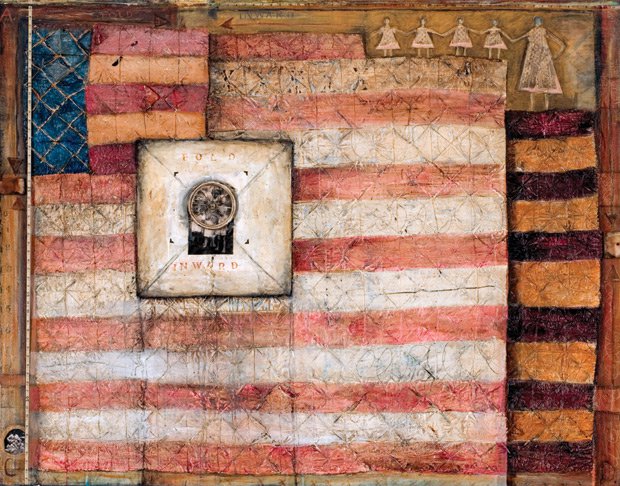Appalachian DIY liquor makers feel the heat.

Still waters were running deep in Botetourt County in March of 1965. Homer Stephen Newcombe was before the judge on moonshining charges that county authorities had leveled after catching him over the holidays with a covertly bubbling still.
To Sheriff Sprinkle and his men, it must have appeared a special crèche indeed as they made their way to the site on Jenkins Creek. There they came upon Newcombe tending the traditional copper pot and arrested the man, charging him with the “illegal manufacture of ardent spirits,” reported the Botetourt County News and Fincastle Herald. Deputy Sheriff Paderick testified that when he reached the still, it was going “full blast,” with “plenty of mash cooking,” mash being, of course, the operative word—the raw material, usually ground corn, that when fermented produces the coveted and most ardent ingredient.
Paderick told the court he had seen Newcombe “stirring up the fire” and hurrying up the vaporization of the boiling mess, sending the alcohol-rich steam into a pipe to condense the distillate of legend, which is collected, sold, and consumed freely as a cure for rheumatism. Paderick, it must be said (though it wasn’t), seemed mighty familiar with the process and the commodity in which it results, witnessing that in 20 minutes or so a “potable beverage would have begun dripping” from the cooling tube.
Homer Newcombe “disclaimed ownership” of the still. Its journalistic tongue thoroughly ensconced in its ample journalistic cheek, the paper suggested that Newcombe “must have been a Good Samaritan,” because he didn’t know whose still it was: “He just didn’t know a thing but that he was tending it.” Perhaps if he could have passed a jug around the courtroom, he might have swayed the judge and beaten the rap. The case his lawyer made was pretty watered down, a song and dance about how Newcombe was the father of five and had never been in trouble before, how he was “employed regularly in a more legal pursuit.” Hard to swallow, the judge thought, yawning, and when the gavel came down, the moonshiner was sent up on a 12-month tour of the pokey.
The practice still thrives in spots, but Botetourt can’t hold a Mason jar to Franklin County, the undisputed Moonshine Capital of the World, which sits just a hop, skip and a stagger farther south. (The nooks and crannies afforded by the topography make it easier to be clandestine in them thar hills.) Virginia joy juice’s fame keeps spreading. In 2012, Franklin County’s corn-fed glory was immortalized in the film Lawless, based on The Wettest County in the World, a novel by native Virginian Matt Bondurant about the shaky, bribe-based rapport that developed during Prohibition between moonshiners and county authorities. The plot is based on the lives of Bondurant’s grandfather and great-uncles, themselves pliers of the ancient craft.
But—gasp!—has corn liquor now gone legit? The labels in the ABC store say so, but purists surely blanch at how that polished stuff is encroaching on authentic mountain dew. Nevertheless, people want that hooch punch, and November 2014 saw the first Virginia Moonshine Festival in Richmond. This year’s will be held Nov. 19, (plan to queue up for moonshine tastings and food pairings). But if you want the real thing, better plan to motor west.
Courtroom Floor Show
1865
Mary Tracy and a Mrs. Whittemore appear in a Richmond courtroom, the former charged with assaulting and beating the latter, reads the Richmond Examiner. Tracy arrives drunk and “bursts into a freshet of tears.” It is deemed that she once was good-looking and still “had virtue left.” The recorder (a part-time judge) “looked on the two wrecks” and, when he demanded $200 in bail from Tracy to “keep the peace” toward the assaultee, the assaultor, “who had been dancing up and down like a turkey upon a hot griddle,” staggered back to the prisoner’s dock, wailing wildly, “God is good, and the world is wide. Let me go!”
Sign of the Times
1940
A sight for sore eyes: Virginia highways, now decluttered of 114,000 advertising signs. The Baltimore Sun calls it an accomplishment that “the Virginia highways commission’s landscape engineers report with much pride.” But the source of this change is indirect. The outdoor advertising act of 1938 licensed roadway signs at a fee of between 50 cents and $2 per. When 114,000 advertisers didn’t ante up, down came their signs. Still, this is seen as evidence of a growing belief that when the Commonwealth has spent millions on “a magnificent road,” it ought to “protect that investment against all who would damage it for the sake of profit, whether by ruining its surface or ruining its looks.”
Can’t Steal a Clue
1990
In Brunswick County, two thieves hit Rose’s Lawn Crafts and Gifts and later steal and destroy property belonging to Ronald Baird, reports the Brunswick Times-Gazette. Rose Ferguson enters her shop and “trie[s] to turn on the radio, but it wasn’t there,” she tells the paper. She notices that some watches, lighters, knives, a heater and tools are also missing. “They ripped the door, jam [sic] and everything off,” she says. Baird sees that the door locks have been torn from his car and that his car stereo and 260 cassette tapes are missing. One thief drops a picture of his daughter near the damaged car, and the stereo is found in plain view on his backseat, where he has parked at his place of work. No charges are leveled for lack of intellect.










